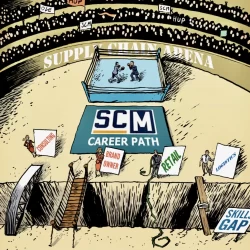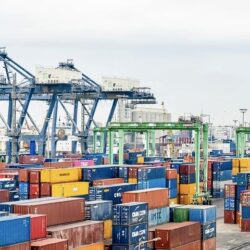Supply chain requires new talent and new skills

Supply chains are largely back to normal following the pandemic, apart from one thing: a strong need for new talent and new skills, according to a recent study by Korn Ferry. Nearly eight out of ten supply chain executives are now looking for employees with an agile mindset. Besides that, experts in communication (61%) and professionals with experience with team-building or organizational design (57%) are in high demand. “The industry has shifted so much that there isn’t a lineage of people with the skillsets to fill new roles,” states Melissa Hadhazy, Senior Client Partner at the consulting firm.
In the report, Korn Ferry combines interviews and surveys of hundreds of executives with its own research to see how supply chain talent is changing, where organizations are finding the required talent, and which skills will be needed in the future. The survey participants spanned a variety of industries – including logistics, manufacturing, retail and consumer products – and covered CEOs, Chief Supply Chain Officers and Managing Directors.
The results underscore how supply chain leaders are struggling to find talent with the diverse skillsets needed today. In fact, many of the roles and skills companies are having a hard time with are among the most critical in supply chain. For example, 57% of survey participants say they experience difficulty finding talent with end-to-end supply chain knowledge, which according to Korn Ferry is a testament to the ongoing disruption in the industry.
Other areas where leaders are having difficulty include finding people with transformation experience (43%) and data analysis & reporting capabilities (41%). More than 40% of respondents also report digital engagement gaps among middle, senior and executive management.
Social skills
But digital, operational and traditional hard skills are not the only ones that are needed. According to Hadhazy, the move from siloed supply chain processes to more networked models, combined with consumer demand for more insight into sustainability and social impact, requires social skills that were not previously asked of supply chain leaders. Collaboration, communication, the ability to work through ambiguity and other soft skills are critical for today’s supply chain leaders, she says.
In addition, companies indicate that they cannot rely solely on internal training and development to meet their talent needs. Therefore, just under 60% of supply chain executives say they look outside their industry for talent with the relevant skillsets. At the same time, when looking internally for future supply chain leaders, 62% of those surveyed say they look outside of the function.
Supply chain is more appealing to young talent
If there has been one benefit of the past two years of headlines about supply chain, it is that awareness about the function has increased and it has become more appealing to young talent, Korn Ferry concludes. Additionally, more of these younger professionals are pursuing careers in supply chain because of its impact; they are keen to help with renewable energy options, more diversified suppliers and other ESG issues. “Young professionals are interested in supply chain because it presents opportunities to make a difference,” comments Hadhazy, adding that the increased attention around supply chain means that now is the time for companies to start building a strong, secure talent pipeline for the future.









